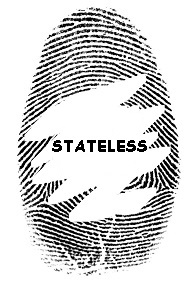http://www.themalaysianinsider.com/sideviews/article/bangsa-malaysia-our-citizenship-defined-syerleena-abdul-rashid
http://www.newindianexpress.com/opinion/Give-Stateless-Indians-Their-Due/2014/02/10/article2047482.ece#.Uv6NE4uzKpg
The first article, about citizenship and statelessness in Malaysia, touches upon an important issue: the relationship between nationality and racial, ethnic, and cultural identity. In a country like Malaysia, which identifies strongly with the "Malay" ethnicity and religion of Islam, what is the place of people who do not conform to the identity of the majority? One result is highlighted in the next article, about stateless people of Indian descent brought by the raj as workers in the rubber plantations of Malaysia.
Though closely related and frequently used interchangeably, citizenship and nationality are not the same thing. Citizenship connotes the package of rights held by an individual against the state, whereas nationality describes the relationship between the state and that individual. The state establishes nationality, whereas the individual obtains citizenship. These are terms of law.
Yet in English and many other languages, nationality also connotes belonging to a group of people who share the same language, culture and traditions. In anthropology and sociology, the word "nationality" is more frequently used in this sense.
Confusion between the two meanings, the first used mainly in law, the second, in the other social sciences and the humanities, reflects confusion about what we as a species mean to say when we use the word "nationality".
For many Americans, the idea of a single "language, culture and traditions" is something of an anathema. Though many of us adhere vaguely to an image of all Americans celebrating Thanksgiving, it is difficult to list features common to all Americans.
Yet in other countries, nationality in the sociological or anthropological sense is very important to nationality in law. Many countries have the name of a national group as the name of their state: Malaysia, Thailand, Swaziland, Slovakia. For some countries, nationality in the sociological sense is so important to legal identity that the two are seen as exactly the same thing, such as in the case of Israel, where Jewish identity, religion, language and culture are necessary for Israeli citizenship.
What does this mean in a world of increased international travel and migration? One view of the future envisions a world of similar multi-ethnic societies of many religions and languages. Were this to happen, there would be little reason apart from climate and topography to live in France as opposed to Chile. Another view holds that the point of nation-states is to create areas exclusive to particular nationalities, thereby preserving each nationality's unique properties.
Ironically, it was the creation of the nation-state that brought about a world where each state contains many nations. Before the nation-state, people lived in informal, fluid nations that sometimes overlapped. The creation of fixed borders created the multi-ethnic political state.
For the time being, we are somewhere between the two visions outlined above. Most states contain multiple nationalities, but many are dominated by a single nationality that has, with greater or lesser success, created a dominant identity, an identity constantly strengthened through cultural assimilation, and constantly threatened by immigration.

No comments:
Post a Comment